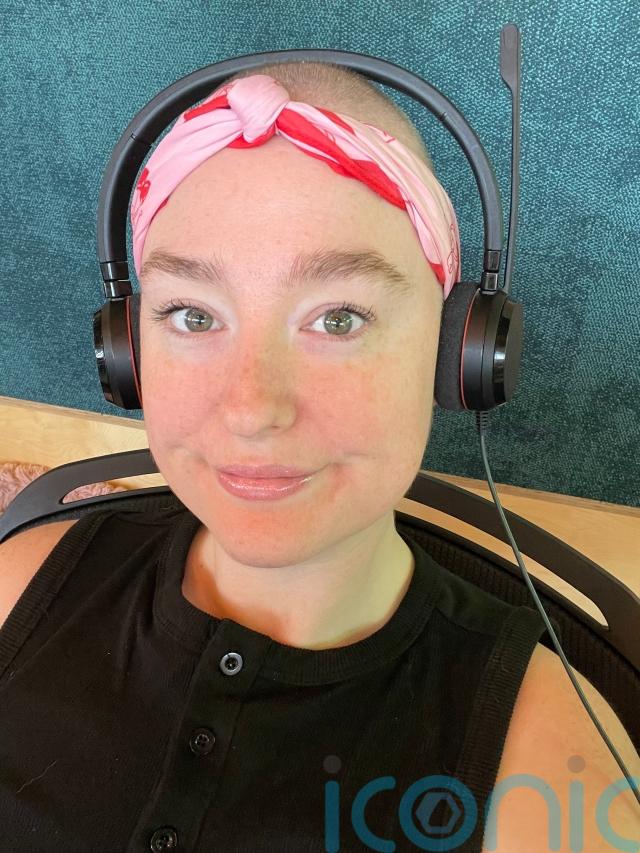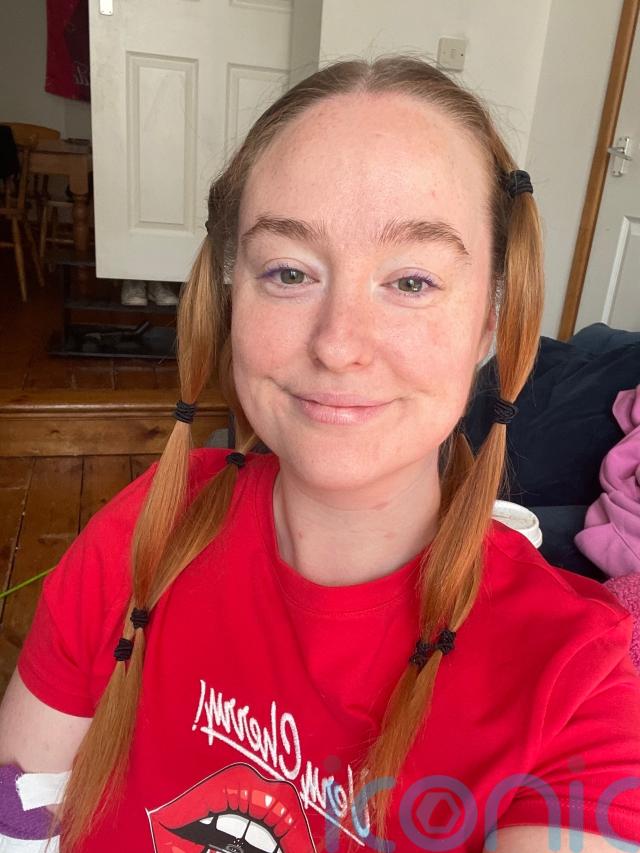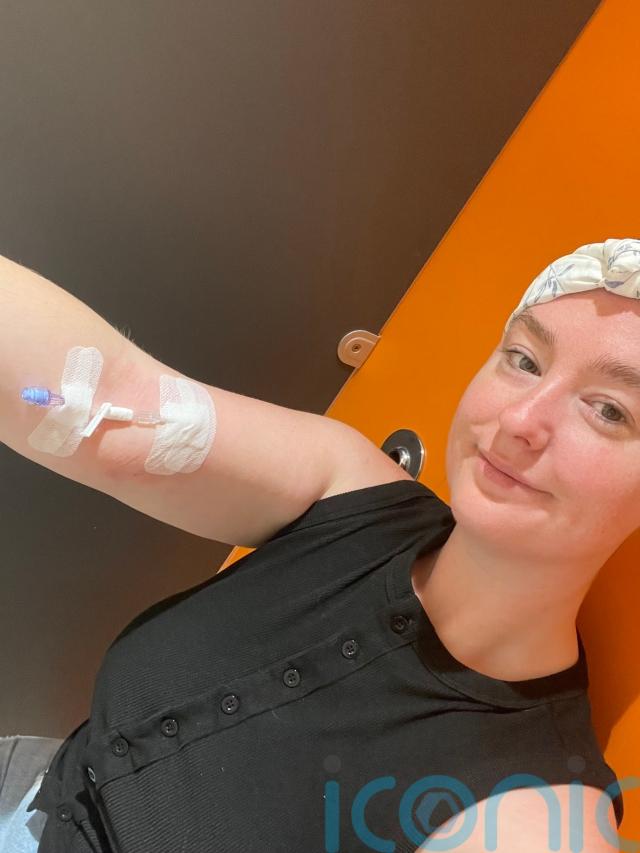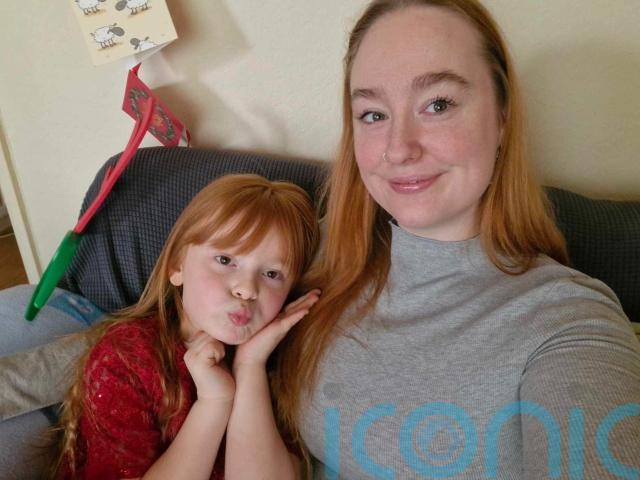
A woman diagnosed with cervical cancer at 25 after delaying a routine smear test has called NHS England’s decision to extend HPV-negative screening intervals to every five years “scary”.
Jasmin McKee, now 26, a head of operations who lives in Southampton, Hampshire, said she began experiencing lower back pain and bleeding after sex in 2023 but put it down to her newly-fitted copper coil.
Jasmin said she attended her cervical screening in March 2024 after initially delaying it due to “horror stories online”, and was told five weeks later that she was HPV positive with a large number of abnormal cells, despite having had the vaccine at school.
She said this was later confirmed as stage three cervical cancer – meaning the cancer had spread into the surrounding tissue – which left her feeling “numb” and led to her keeping the diagnosis from her family at first.

She said she had surgery in November 2024 and radiotherapy in January 2025, but when both were unsuccessful, she began chemotherapy in April.
She shaved her head in anticipation of hair loss, with her six-year-old niece, Darcy May Rose, cutting 12cm of her own hair in support.
Jasmin, who is expected to finish treatment in September 2025, says the experience has highlighted the importance of cervical screening, and she has criticised NHS England’s decision to change HPV-negative screenings for those aged 25 to 49 from every three years to five.
Jasmin told PA Real Life: “When there are big changes like this, it can feel like they (NHS England) are not really taking women’s health seriously.
“I think that was probably one of my first thoughts when I first read about the changes… it can feel quite dismissive.

“It’s a scary thought that there could be women who go under the radar.”
In March 2023, Jasmin had a copper coil fitted and, around the same time, began experiencing lower back pain, bleeding after sex and irregular periods, which she assumed were due to the intrauterine device (IUD).
She turned 25 that December and delayed her cervical screening after reading “horror stories online”, eventually attending in March 2024 – although she now realises she had “nothing to worry about” in terms of the test itself, and should have gone straightaway.
“I was in and out in 10 minutes and, for me, it was painless,” she said.

About five weeks later, she said doctors confirmed she was HPV positive, with a large number of abnormal cell changes.
Two weeks after that, she said she had a biopsy and internal and external ultrasounds – and another fortnight on, she was told she had stage three cervical cancer.
“Everything just goes a bit numb… it’s just such a big shock,” she said.
“The thought did go through my head of, ‘What am I going to tell my grandparents?’
“I actually didn’t tell my family for quite a while.

“I didn’t want the people that I love the most feeling sad for me. I just didn’t want them to worry.”
Jasmin said that doctors later confirmed her earlier symptoms had been signs of cervical cancer, not the coil.
Jasmin said she had surgery in November 2024 to try and remove the tumour in her cervix, but doctors were unable to remove it completely and it was continuing to grow to two to five centimetres in size.
In January 2025, she began radiotherapy, five days a week for three weeks, and decided to tell her family about her diagnosis.

“They were upset but so supportive, I felt bad for not telling them,” she said.
“It (the radiotherapy) just made me feel so tired, I could have slept for 24 hours a day.”
Unfortunately scans revealed the radiotherapy had not been effective, and Jasmin began chemotherapy in April 2025.
“I was just frustrated after going through all of it for it not to work. It felt pointless,” she said.
Doctors said there was a high chance she could lose her hair, so she shaved her head to stay “in control” and donated her hair to The Little Princess Trust, which makes wigs for children and young people.

Her niece, Darcy May, also cut 12cm of her own hair in support, making Jasmin “burst into tears”.
She is now having eight rounds of chemotherapy, every three weeks, and is expected to finish treatment in early September 2025.
“Once I’m better, I’m going to grab every opportunity and get as much happiness out of life as possible,” she said.
According to NHS England, from July 2025, younger women aged 25 to 49 who test negative for HPV – meaning they are at very low risk of cervical cancer – will be invited for screening every five years instead of three.
The approach is based on evidence and expert recommendation from the UK National Screening Committee and is based on analysis from King’s College London showing five-yearly screening is just as safe as three-yearly, with the same number of cancers found.
This change will bring cervical screening in England in line with Scotland, Wales, and other European countries, and aligns screening intervals to that of women aged 50 to 64, where they are invited every five years.
But, Jasmin believes the change is a step in the wrong direction.

She said: “It (a cervical screening) won’t always lead to a diagnosis, but it’s just to be on the safe side.
“Every three years is obviously a long time in itself, but I think a lot can happen in five years, and then someone might not know about cancer or something else until it’s too late, and it could have been prevented with more regular smear tests.
“So I do think (the change) was disappointing to read.”
At present, any woman who has HPV or has a recent history of HPV will continue to be invited to more frequent screenings to check the virus has cleared and, if not, to check for cell changes in the cervix.
Looking back on her experience, Jasmin has realised the importance of cervical screenings and is urging other women not to delay their appointments.
She said: “They (cervical screening tests) are not an embarrassing thing, the nurses will do 20 of them a day, no one cares.
“It’s so quick, it’s nothing to be scared about and they can save your life.”

An NHS England spokesperson said: “We recognise that changes to cervical screening can seem worrying but want to reassure everyone that this new approach is based on robust scientific evidence and an expert recommendation from the UK National Screening Committee.
“The NHS cervical screening programme tests for human papillomavirus (HPV) and uses a better and more accurate test than before.
“This means if you test negative for HPV, you don’t need to be screened as often as your risk of developing cervical cancer is very low.
“If you test positive for HPV, we’ll monitor you more closely with additional tests and follow-up appointments.
“This personalised approach ensures everyone receives the right level of screening based on their individual risk factors, providing better protection while reducing unnecessary procedures.”
The NHS website says anyone worried about symptoms of cervical cancer should see their GP.
To donate to Jasmin’s GoFundMe, visit: www.gofundme.com/f/support-jas-to-beat-stage-3-cervical-cancer.
Subscribe or register today to discover more from DonegalLive.ie
Buy the e-paper of the Donegal Democrat, Donegal People's Press, Donegal Post and Inish Times here for instant access to Donegal's premier news titles.
Keep up with the latest news from Donegal with our daily newsletter featuring the most important stories of the day delivered to your inbox every evening at 5pm.